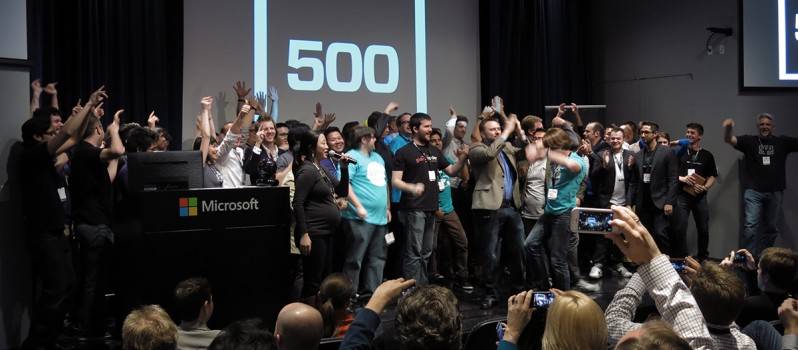Editor’s note: This post comes courtesy of Adam Komarnicki. Adam is a Chief Customer Officer at Fundacity, a Santiago-based startup that provides tools connecting startups and investors, to help them select and grow the next big thing. You can contact him at [email protected].
If you are a startup founder based in Latin America and tend to read US tech websites such as TechCrunch or Venture Beat, you wonder if the news about startup valuations and rounds raised is for real. The amounts are sometimes enormous! The reality in Latin America is quite different; serious financing is both harder to get and usually much less smart if you succeed. Don’t lose your hope however, because the situation is improving, especially for early stage startups. Let’s look at the most common options of external funding for such startups – LatAm angels and accelerators.
However, before starting to think where to look for funding, early stage startups should be asking themselves these two questions:
- How much money do I need in the next 8-10 months to grow my business?
- How important it is for me to attract “smart money” i.e. additional benefits from my investor such as advice and contacts?
We will give you an overview of your options based on these criteria.
Angels
Angels are wealthy individuals, who have disposable capital and want to invest it in startups. Angels tend to invest in very early stage startups (so called “seed funding”), which are also the most risky. There are many angel associations in Latin America such as Chile Global Angels, Anjos do Brasil or Angel Ventures Mexico, although their level of activity differs. For example, Chile Global Angels, with 27 members, has screened 400+ startups, funded 13 startups and allocated $1.8m over 4 years. That is hardly impressive, especially that there are more and more interesting startups coming from the region.
Investment
Typically an angel investor from LatAm will invest USD 10-50k, although in Brazil you could see higher numbers in some cases, especially if an angel investor is a part of a larger angel group and invites others to co-invest.
Smart money
Unlike in the US, LatAm has very few professional angels i.e. people who are 100% dedicated to startup investing. Also, only a handful of them have relevant experience gained running their own tech business. You can rather expect someone who has made money in more traditional industry (like agriculture or mining) or profession (banker, doctor) and is now interested in technology. What this means for startups is that such people may not offer a startup so called “smart money”. Quite the opposite, they could even be a devil in disguise. Why? Either they will not be able to offer you relevant advice at all, or worse, they will do it based on their experience in more traditional businesses, not understanding that startups are very different. On the other hand, if your startup is trying to disrupt a traditional industry such as transportation, healthcare, or retail; having a well-connected angel investor can be very beneficial for credibility and introductions.
Angels vs. devils
Speaking of a devil… startup investing is still a new thing in Latin America, which means you may come across angels who will not be very helpful and may even damage your business. The best way to identify the devil is to test the investor before signing anything:
- Do background check on their previous investments: talk to founders of startups they funded, ask what was their level of support and value added. If they haven’t had any investments to date, think carefully if you want to risk being their first one. If they refuse to give you contacts, your devil-o-meter should start sending you warning signals.
- Ask in advance about the control they will require and how much equity they expect in return for their investment. Generally you should not give more than 10% of your company for your first seed round, unless it is a large one and you do not expect to raise more later. Devils will typically want more equity, much more.
- One thing to be especially careful about is when an angel wants equity for their “advisory services”. Equity should generally be exchanged for cash and advisory services should be a part of the whole package. It’s simple – if they put their own money in your business, they will be interested in helping you succeed. If not, they are trying to find a way to get more equity without putting more money, or are even looking for a free ride.
Incubators
Incubators in LatAm are usually connected to universities and focus on helping entrepreneurs in their local communities by offering office space, as well as legal/accountancy/business advice. Many of them do not specialize in startups and, as they use academic staff, their advice may not be very practical. On the positive side, incubators do not usually take equity and are generally a very good place to go for entrepreneurs who are just starting.
Accelerators
Accelerators take equity in exchange for money, mentoring and a wide range of services such as office space, professional services, or IT services provided by sponsors. This is a fairly new phenomenon in Latin America and most of them have been created in the last 3-4 years.
Investment
The best financial conditions are offered by Start-Up Chile and SEED, which is run by the Brazilian state of Minas Gerais. Both of them give grants, which means the founders do not need to give up any equity in exchange. If your startup becomes a part of Start-Up Chile program you will receive USD 40k and a similar amount when selected to join SEED. Another famous program financed by public funds is Start-Up Brasil, where startups can get as much as USD 100k, but in this case the participating accelerators that distribute the funds do take equity for the funding.
The amounts offered by non Government accelerator programs differ, but you should normally expect to give up 6-10% of your equity. In exchange, you can e.g. get help with legal and accounting issues, HR hiring services, office space and USD 25k in cash from Nxtp.Labs in Argentina; or office space, one week in Silicon Valley and USD 28k in cash from 500 Startups in Mexico City. These services have a monetary value, so remember that if an accelerator advertises that it gives startups for example USD 40k, not all of it will be cash. Conditions differ a lot, so it is good to check carefully before applying. To help you, at Fundacity we have listed all the top LatAm accelerators here.
In addition to money that startups receive during the acceleration, many of the accelerators have good relations with VC funds that can provide further funding. At the end of most programs, accelerators organize so called “Demo Days”, which is usually an event during which each startup from the program can present themselves to selected group of investors. Even if getting funding after your pitch will not be that straightforward, getting feedback and introductions to investors is very valuable.
Smart money
The other main benefit that accelerators are meant to provide is mentoring. However, its true value is sometimes difficult to measure. It’s not difficult to arrange mentors and provide workshops about Lean Startup, but it’s not easy doing it well and there are many LatAm accelerators, especially from smaller cities, which struggle here. To be fair, it’s not always their fault. Simply, there are not that many people around who qualify as good mentors i.e. have relevant experience, time to do it right as well as mentoring skills.
The most prestigious programs in the region are run by Nxtp.Labs from Argentina and 21212 from Brazil – both with good contacts and access to know-how and mentors from the US. It is also worth mentioning 500 Startups in Mexico City and Wayra – Telefonica’s global accelerator with offices in Santiago, Sao Paulo, Buenos Aires, Bogota, Caracas, Lima and Mexico City. Some of the accelerators specialize and can offer more focused type of mentoring, good examples being Pipa, Jardín de Innovaciones (both social impact) or naranya*LABS (mobile marketing and commerce).
It is worth knowing that mentoring usually stops after acceleration. That is especially the case with accelerators that mainly distribute government funds. They will be more interested in making sure they account for every peso/real received from the government to get funding the next time, than taking care of startup’s growth.
Other
Joining an accelerator is generally a very good idea, especially if you are in a place where startup community is not very big and/or international. During acceleration you will surely learn new ways to validate your idea and grow your business. Besides, you will be able to meet and consult with people who are facing similar problems and even make friends.
Venture Capital funds
There are not many VC funds, which actively do seed financing in Latin America. They usually invest in companies that have graduated from acceleration programs and already have some traction, which means we haven’t considered them for the purpose of this article.
Summary
After exhausting your own savings and not being able to raise funds from parents or rich uncle, the best option to get external funding for early stage startups are accelerators. There are many to choose from, but the quality differs too. It is difficult to judge quality of many programs, as there is little history and further funding success, so our advice is:
- Apply to government programs in the first place. Equity-free funding and good brand, such as in case of being a Start-Up Chile graduate, can do no harm.
- When you decide on an accelerator that you think can add the most value to your startup, speak to entrepreneurs who have graduated and ask their opinion. It’s easy to make an attractive website, not that easy to set up a really good program with great value for participating startups
- Be mobile. The best accelerator for you is probably not the one, which is geographically the closest.


